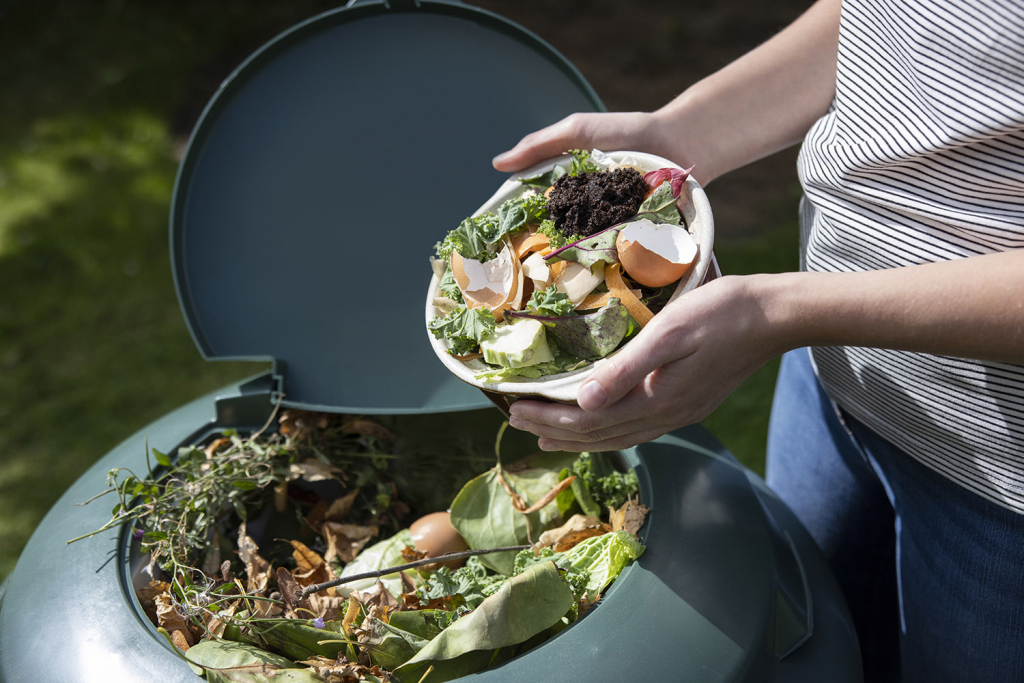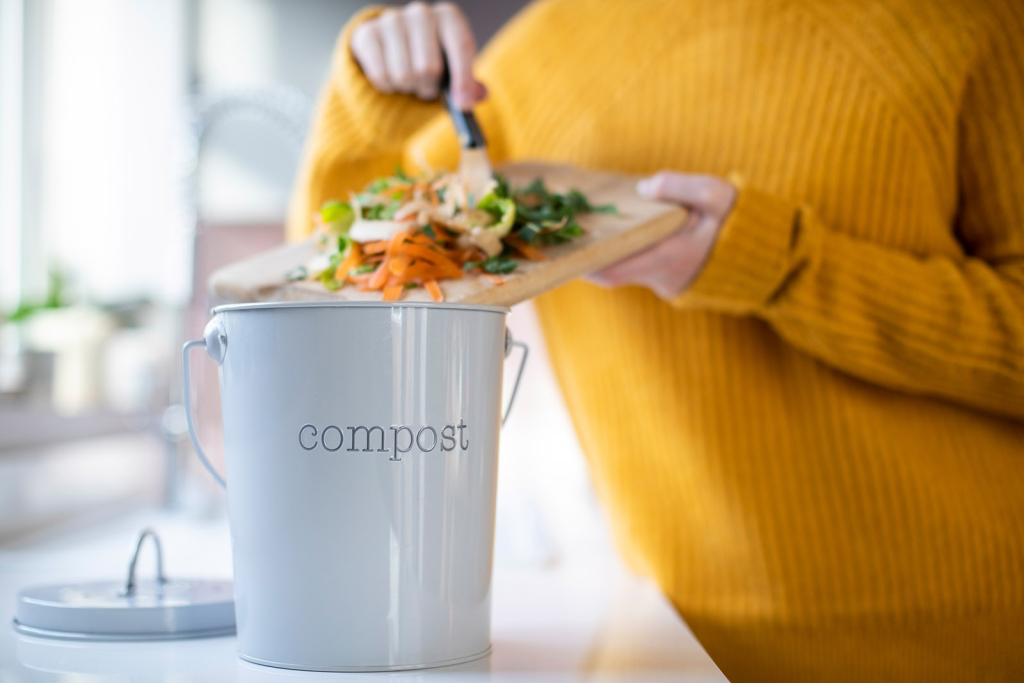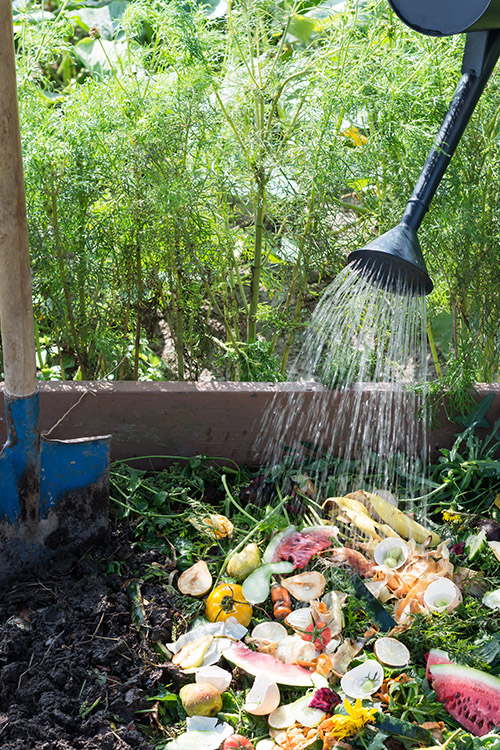Start composting at home today with our ultimate guide for beginners
Workplaces aren’t generally the first place you think of for composting, but over the past two years, ACU has grown a successful green initiative thanks to a partnership with local organization, Compost Winnipeg. The green organization offers collection and compost services to a variety of locations — from cafés and offices to homes and multi-family residential buildings.
Here are some straightforward tips to help you start your home composting journey.

Why home composting?
Home composting reduces the waste stream by diverting organic waste from landfills, lowering the environmental burden. Diverting from landfills means lower methane emissions, an important aspect of combating climate change. It also cuts down on waste management costs.
When you start composting at home, you’ll reduce personal food waste and lead a more resource-efficient lifestyle. Part of that lifestyle can include adding compost made at home to your gardening routine. It will improve soil health, aid water retention and fertilize plants, all from a sustainable compost you made yourself!
How to compost at home
Composting at home is easy and low-cost. If you have spare materials around the house, it very likely won’t cost you a dime. All you need are kitchen scraps, a spot for your pile or bin (read on for instructions to make your own!) and a few spare minutes each week to tend to your mix.

Collect your scraps and leftovers
Get a bucket—even a used ice cream pail or a kitchen bowl—and use that to collect your fruit and veggie scraps, leftover rice, bread or pasta. These are all backyard composter-friendly items.
Create a compost bin or pile
If you have enough yard space, you can make a pile for your home compost. Alternatively, you can purchase containers or make your own. Check the Green Action Centre website for more information.
4 easy options for building your own compost bin at home:
- Drilling holes into an old garbage can
- Wire mesh or fencing
- Wood pallets secured with zip ties
- If you’re willing to build something a bit more complex, try this wood and wire bin
Use leaves or additional yard material
After dumping your kitchen scraps into your compost pile or bin, it’s time to add carbon-rich materials, including raked leaves, sawdust, shredded newspaper or straw. These “brown” materials are key to efficient break down of materials in your home compost.
When starting your compost, remember that compostable materials are categorized as either carbon- or nitrogen-based, and maintaining a balance between these elements is essential for a healthy pile. Carbon-rich materials such as branches, dried leaves and shredded paper give compost its light texture, while nitrogen-rich materials like food scraps and lawn clippings provide material for enzymes.
For best results, aim for one-third nitrogen-rich “green” materials to two-thirds carbon-rich “brown” materials. A good balance will promote oxygen penetration and block odours. If you’re unsure, adding more carbon is a safe bet.
Add water and mix it up
To achieve a balanced compost mix, aim for 40 to 60% water. Too much water will choke out the oxygen and slow microbe growth. Too little, and your mix won’t decompose properly. Be sure you stir it every once in a while to oxygenate the mix.
Follow your simple routine
Once you establish a routine, home composting is simple. Expect to spend 10 to 15 minutes per week tending to your mix.

Related: How to set up an office compost program
Sign up for pickup service
If you’re not ready to start composting on your own, you can sign up for Compost Winnipeg’s residential pickup service. You’ll then receive a five-gallon bucket to fill with compostable waste.

Subscribing allows home, apartment and condo residents to divert more waste materials than a backyard bin. Meat, dairy, wax paper, parchment paper and compostable cups, plates and napkins can all be diverted to compost instead of ending up in a landfill.
Compost Winnipeg operates out of the Social Enterprise Centre at 300-286 Smith Street in Winnipeg.
For more information, visit Compost Winnipeg.
Up Next
Celebrating the 10th anniversary of student-run credit union
Just over 10 years ago, a survey circulated at Winnipeg’s Technical Vocational High School. The results showed that students at the school, commonly known as Tec Voc, felt short-changed—they were…
Kilter Brewing Co. serves up craft beer and community connection in St. Boniface
Deep in the heart of St. Boniface, Kilter Brewing Company is a hidden treasure—an oasis for Winnipeggers to escape their day-to-day routines, enjoy craft beer and connect with their community….
How to use a mortgage calculator to budget better
Learn how to use ACU’s mortgage calculator to figure out how much mortgage you can afford, and what budget you should set before you start house hunting. A mortgage lender…








